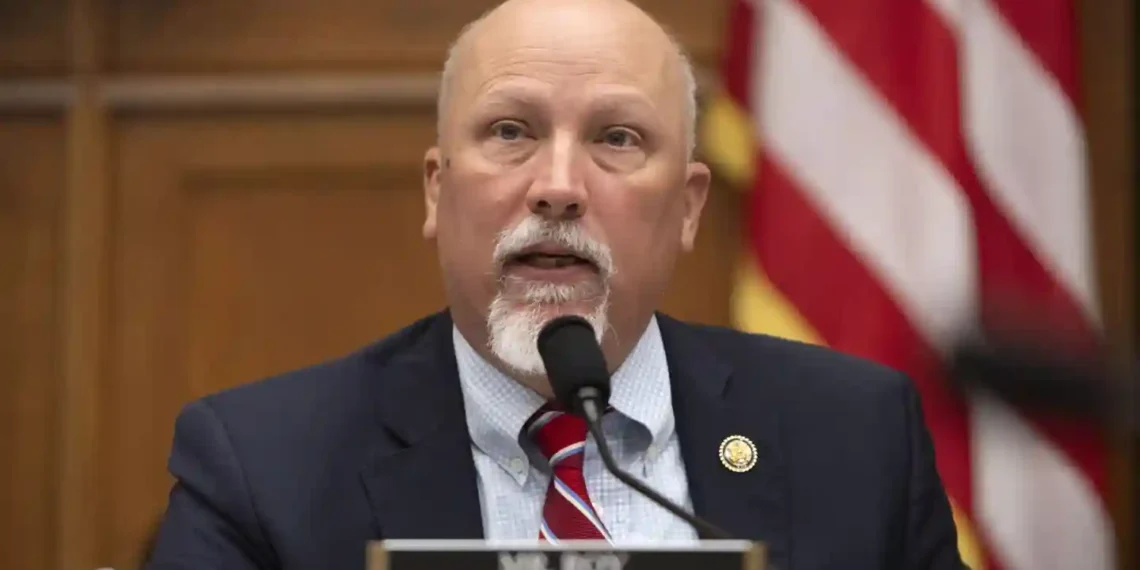How the House’s Proof of Citizenship Requirement Could Impact Voter Registration
In a controversial move, the U.S. House of Representatives recently approved legislation that would require documentary proof of U.S. citizenship for anyone registering to vote. The bill, known as the Safeguard American Voter Eligibility Act (or SAVE Act), is sparking concerns from voting rights groups, who warn that it could disenfranchise millions of Americans—especially those facing barriers to obtaining the required documentation.
The SAVE Act would impose a proof of citizenship requirement for all voter registration applications, significantly impacting how Americans register to vote. While proponents, including President Donald Trump and House Republicans, argue that this will eliminate potential instances of noncitizen voting, critics argue that it risks suppressing the votes of eligible citizens, especially among vulnerable populations.
Despite the bill passing in the House, its future remains uncertain in the Senate, where Republicans lack the votes to overcome a filibuster.
If the bill becomes law, it would require all new voter registrations—and updates to existing registrations—to include documentary proof of U.S. citizenship. This would apply to people who are moving, changing their names, or need to update their voter information.
Rep. Bryan Steil, a Wisconsin Republican and proponent of the bill, clarified that the law would not affect individuals already registered to vote unless they needed to update their information. However, voting rights groups caution that this could lead to significant hurdles for those needing to update their registration, particularly after life events such as moving or changing their name.
Rep. Chip Roy of Texas, who authored the bill, stated that it aims to create a citizenship-based registration system, but also acknowledged that the process of transitioning to such a system would take time.
To register under the SAVE Act, applicants would need to provide one of the following documents:
- REAL ID-compliant driver’s license that states the applicant is a U.S. citizen.
- U.S. Passport.
- Military ID that includes the applicant’s birthplace in the U.S.
- Certified birth certificate along with a government-issued photo ID showing the applicant’s birthplace.
One of the biggest concerns about the SAVE Act is that many REAL ID-compliant driver’s licenses do not explicitly indicate U.S. citizenship. REAL ID, established by Congress in 2005, ensures that IDs meet certain standards, but it doesn’t always include a “citizen” label, even though some states like Michigan and New York do offer IDs that denote citizenship.
As of January 2024, 56% of U.S. driver’s licenses are REAL ID-compliant. However, many people—particularly those who are legal residents but not U.S. citizens—can still obtain a REAL ID. Rep. Roy expressed hope that more states would adopt the citizen-marked REAL ID as a solution.
Another significant issue is that millions of Americans do not have easy access to their birth certificates, which could create barriers for voter registration under the SAVE Act. This could particularly affect women who’ve changed their name after marriage, as their birth certificates may not match their current ID.
Voting rights groups are concerned that these issues could lead to widespread disenfranchisement, especially for marginalized communities. However, the SAVE Act includes a provision directing states to develop processes for accepting supplemental documents (like marriage certificates) to help establish the connection between a birth certificate and a government-issued ID.
Under the SAVE Act, applicants who submit their registration forms by mail would need to provide proof of citizenship in person to their local election office by a deadline set by their state.
This could present major challenges for voters living in rural areas where the nearest election office could be hours away by car. Additionally, states with same-day voter registration would require voters to submit proof of citizenship at the polling location before their ballot is counted.
The bill also raises questions about how states with online voter registration or automatic voter registration (through motor vehicle agencies) will be affected. Democratic election officials have expressed concerns that this legislation could undermine these systems, making the process more cumbersome for voters.
Republicans argue that even a small number of noncitizen votes—no matter how rare—could undermine public trust in U.S. elections. However, Democrats point out that voting by noncitizens is already illegal in federal elections, and violations can result in serious penalties, including fines and deportation.
A recent review in Michigan found that only 15 noncitizens voted in the 2024 general election out of over 5.7 million ballots cast. Of those, 13 were referred for potential criminal charges. Critics argue that these isolated incidents do not justify laws that could potentially block tens of thousands of eligible voters from casting their ballots.
As the bill now moves to the Senate, where it faces an uncertain future, it’s clear that the debate over voter eligibility will continue. Advocates of the SAVE Act argue that it will safeguard U.S. elections, while opponents warn that it could disenfranchise millions of eligible voters—particularly those without easy access to the required documents.
With the fate of the bill hanging in the balance, all eyes will be on how lawmakers address the concerns raised by voting rights groups and ensure that every eligible voter has a fair opportunity to participate in the democratic process.
This article was rewritten by JournosNews.com based on verified reporting from trusted sources. The content has been independently reviewed, fact-checked, and edited for accuracy, neutrality, tone, and global readability in accordance with Google News and AdSense standards.
All opinions, quotes, or statements from contributors, experts, or sourced organizations do not necessarily reflect the views of JournosNews.com. JournosNews.com maintains full editorial independence from any external funders, sponsors, or organizations.
Stay informed with JournosNews.com — your trusted source for verified global reporting and in-depth analysis. Follow us on Google News, BlueSky, and X for real-time updates.














